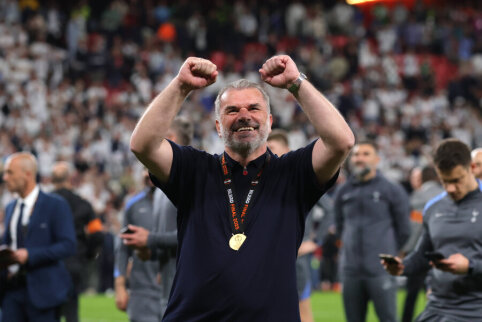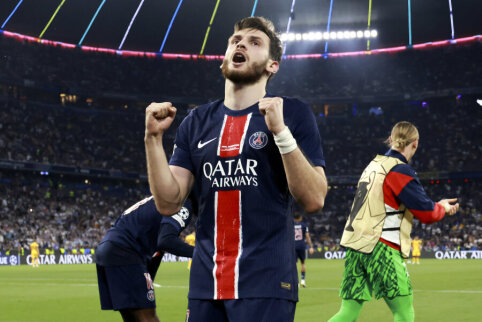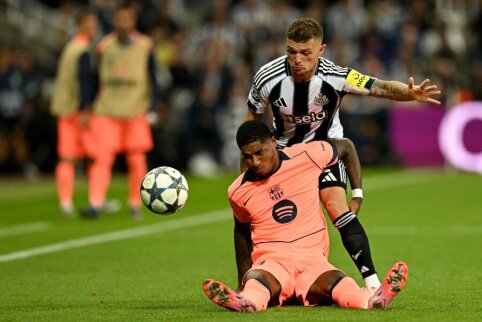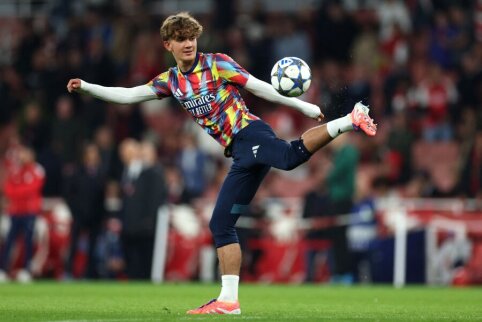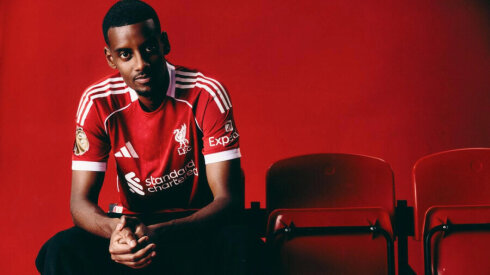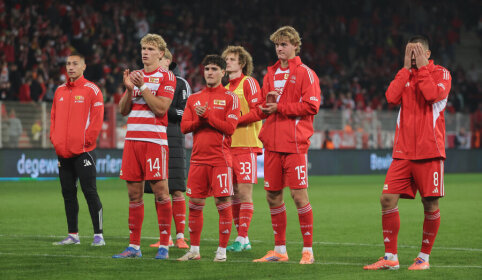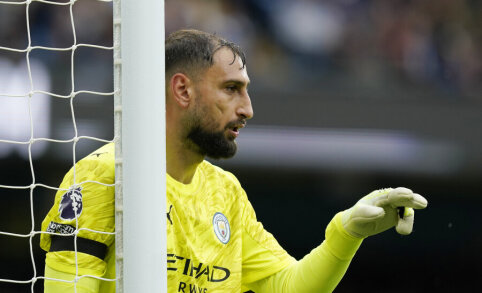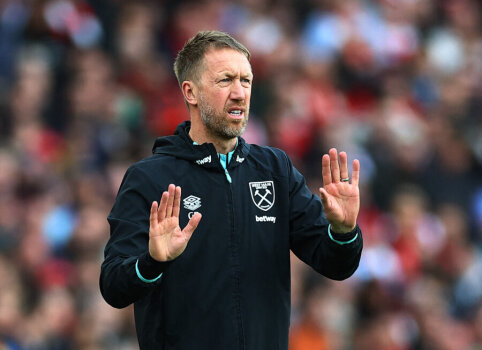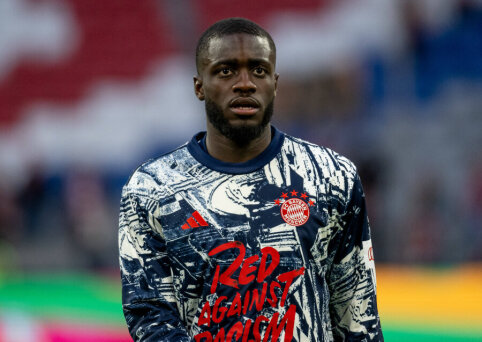![Article: Football psychology, or when will Lithuanians play in the World Cup? [Part II]](https://www.eurofootball.com/img/uploaded/w900/2023/08/56545.jpg) © EuroFootball.com
© EuroFootball.com
EuroFootball.com readers are presented with a series of articles by publicist and writer Vilija Litvinavičius on the topic of "Football Psychology, or When Will Lithuanians Play in the World Cup?". In it, the author analyzes the factors that prevent Lithuanians from feeling like a complete football state, tries to refute some facts with unusual arguments, and forces the reader to look at some simple things more critically. Here is the second part of the cycle. First part of the article series Barrier zone that everyone overcomes Lithuania is a basketball country and the land of Mary! Is that a serious argument? It's a myth and an anecdote, but not an argument if someone believes in such things... When has one sport hindered another? Why specifically in Lithuania? How does the strong rugby team of this country harm French football? Ice hockey is very popular in the Czech Republic, but it didn't stop this country's football team from playing in the World Cup final twice and becoming European champions. But in Serbia, basketball doesn't hinder football at all! If a bad dancer is hindered by some organ, it must be amputated as soon as possible. Of course, to avoid that unpleasant operation, the same humorous argument can be turned around. Show it from another perspective. It is claimed that in a "basketball country" everyone is interested only in that sport, and almost no one is interested in football. This is complete nonsense. When in Lithuania was there no interest in the European and World championships? Unless in those years when they didn't take place. Just remember the 2002 World Cup broadcasts from Japan and South Korea, that inconvenient time, in the middle of the day European time, and we will immediately see the picture when almost every cafe had TVs set up, and they were full. Did fewer people gather than during prestigious basketball competitions? And the 2006 World Cup in Germany? Packed trolleybuses in the evenings in Vilnius and Kaunas, people rushed to catch the first broadcast. During the "off-season," the peak of people in trolleybuses at that time is usually over. No one is interested in football in Lithuania! Who came up with such nonsense? Perhaps a few old men who demanded back then, specifically in 1994, that the World Cup broadcasts be interrupted and the Song Festival be shown instead? Then it wasn't just about "sacred basketball," but also about the land of Mary, and such a dangerous "temptation of the devil" as football, which promotes violence, a western ideology foreign to us, and so on. It's hard to remember other arguments for the unpopularity of football in Lithuania. After all, there are people in Lithuania, not so few, who claim that Jesus Christ was of Lithuanian descent! Is it worth repeating those arguments that support this theory? But they are worth as much as the arguments that no one likes football in Lithuania, except for the dangerous "terrorist bunch" in society. Well, another person completely abandoned the faith in football, saying that Lithuania is such a small country... Since when have we become the smallest European country? Let's compare. Lithuania's area is 65,200 sq.km, Netherlands' - 37,330 sq.km. So Lithuania is twice as large. The Netherlands played in the World Cup final twice, they were European champions. Belgium? Its area is 30,513 sq.km, so again, a country twice as small. Comparing Belgium lately, its national team was one of the strongest in Europe, well-known Belgian clubs "Club Brugge" and "Anderlecht." And who doesn't know the Dutch "PSV," "Ajax," and "Feyenoord"? Can it be argued that Belgium has almost three times more people than Lithuania, and the Netherlands - almost five times. Is that a strong argument? All without jokes, even Croatia's area is smaller than Lithuania's - 56,538 sq.km, and the population is not so large - 4.3 million, but Croatians placed third in the 1998 World Cup, regular participants in these ranking competitions. Slovenians had reached both the European and World Cup finals, even though Slovenia is a tiny country: its area - 20,251 sq.km, the population - 1.9 million. So neither the size of the country nor the number of inhabitants determines. For example, what can you say about India's football achievements... the country's area - 3,287,590 sq.km, the population - 1 billion 50 million people. Is it worth stretching Lithuania to at least the size of Ukraine? Put your hand on your heart and say if that would help Lithuanian football! We can move on to more serious arguments. Weak club football in Lithuania. A little is played in a few cities in Lithuania, and among district teams, only Marijampolė's "Sūduva" is a more serious team. And what is the situation in the Netherlands? In this country, the highest division of 18 teams is of an unimaginable attraction, scores like a torrent 5:0, 6:2, and even 4:1 probably isn't considered a particularly impressive victory. Tiny Netherlands clearly does not reach such a grand league. The team that finds itself below the tenth place in the tournament table usually responds with four goals as a "honorable" comeback. This low-level championship did not prevent the strongest Dutch clubs from winning the Champions League or the UEFA Cup. And how many Dutch footballers are "scattered" across prestigious league superclubs? You will say the general structure of football, organization... That is closer to the truth. But certainly, not the size of the country, not the number of inhabitants, really determine that structure. Something else hinders Lithuania from having it. Poor stadiums? Let's build them, and the level of Lithuanian football will rise to the stars! Even if the national team doesn't play well, a good stadium is still needed. Just don't promise that the stadium will win the ticket to the World Cup for Lithuania. But some Lithuanian Football Federation leaders present such an argument. Remember the 1974 World Cup in Germany. There was a Haitian team there. Interesting, what are the stadiums like in this country? Some economists say it's the poorest country in the world. Voodoo, zombies, dictatorship, overcrowded prisons, poverty, epidemics... At that time, CONCACAF received only one ticket to the World Cup, so Haiti had to beat Mexico, the USA, and many other Caribbean islands and Central American countries' teams. And at the World Cup, Haiti performed quite well. They lost only to Poland, 0:7, played with Italy 1:3, with Argentina - 1:4. How to explain all this? It turns out that our footballers, for other reasons, seem to do less than their opponents, and they are greatly intimidated by the "authorities". But tell me, aren't footballers the same people? Aren't they oppressed by the same defective thinking model? Don't they think, like everyone else, that Lithuania is too small for football victories? Doesn't it seem equally unreasonable to them that basketball hinders football? Don't they think that Vilnius "Žalgiris" should be reshaped into Madrid's "Real", and good results will pour in as if from a pipe? Are such attitudes overly oppressive? The completely illogical More-Swift thinking model? In which we dream to refute that dream. And the sophists will prove to you that you will prove what you want to prove in advance, regardless of what the objective truth will be, and it is impossible to find that truth. Well, some call some skeptics, others - relativists. Which is closer to Lithuanian masses - skepticism or relativism? Of course, skepticism! The skeptic, although everything seems impossible to him, nevertheless, something seems. But the relativist - is a cynic, nothing is sacred to him, as he wants, so it can be. What difference does it make to him? But it has long been noted that people think according to a model, automatically applying everything to it. Neither skepticism nor relativism is a necessary pattern of thinking, its schema. Relativists do not know what to objectively choose, therefore, they defend only their personal interests, not bothering to find out if they are right, and their arguments are not twisted from their finger. The skeptic condemns himself to failure in advance, he automatically chooses arguments that prove that "it is impossible," he does not want to notice completely different things. He chooses arguments according to himself, not to prove something, but to deny what seems unrealistic to him in advance. So this More-Swift thinking model cannot prove any truth at all. But a Buddhist philosopher would easily overcome Gorgias. It would be enough to say that any classification is artificial, reflects only certain psychological attitudes, and only similar things can be compared. Each thing proves itself, one thing cannot be proven by another. By the way, Roman philosophers also knew this, proclaiming the formula of defective thinking "qui pro quo", which means "one changes the other". So relativistic arguments cannot prove anything, therefore according to that method, any discussion is meaningless in advance. The arguments of skeptics are foolish because they didn't check the primary assumption, whether what seems utopian to them is actually unattainable. If it is possible, then a methodology should be developed as to how to achieve it, not negate it. Finally, negation arguments are meaningless because they wrongly classify, find non-existent dependencies, that the level of football depends on the country's size. You cannot derive any rule from the negative, therefore, it is incorrect. So the answers lie elsewhere. They are elementary simple. So instead of classifying countries by size, let's try to classify football itself. And we will find several unexpected things. And the main barrier zone that needs to be overcome to reach the World Cup is flawed thinking. Wait for the continuation. Third part of the article series


